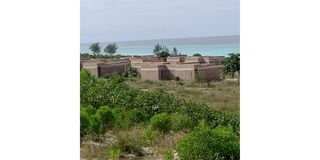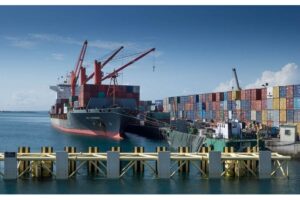Dar es Salaam. The International Centre for Investment Dispute Settlement (ICSID) has extended the suspension of proceedings between British real estate developer Pennyroyal Limited and the government of Tanzania until next year.
The extension, now until January 12, 2025, allows both parties to pursue negotiations for an out-of-court settlement regarding a project based in Zanzibar.
The case stems from the government’s appropriation of 411 hectares from the developers in Matemwe, Zanzibar.
According to details on the ICSID website, the first suspension was from April 29 to July 16, 2024, as agreed by both parties.
Tanzania’s Solicitor General, Boni Luhende, confirmed ongoing talks between the parties without disclosing further details on the arbitration suspension.
The specifics of Pennyroyal’s demands remain unclear, although the project was initially valued at $1.6 billion upon completion.
If a settlement is reached, it would mark Tanzania’s second out-of-court agreement in less than a year.
In October 2023, Tanzania settled with Canadian mining company Winshear Gold Corp, paying $30 million (Sh75 billion) following a dispute over the expropriation of its SMP Gold Project in southwest Tanzania, originally seeking over Sh250 billion in compensation.
Analysts then hailed it as a smart decision, with TLS President Harold Sungusia saying that Tanzania can avoid paying heavy penalties for cases filed at the international tribunals by engaging the aggrieved parties out of court instead of waiting to ride the storm.
“When an investment dispute like what we have seen in recent years comes up, it is prudent that the clauses of the agreement are adhered to, instead making political utterances that interfere with the legal interpretation of the agreement,” he said.
Blue Amber development suspended
In August 2022, Pennyroyal announced the suspension of the development of Blue Amber Resort following the withdrawal of their building permit by authorities.
In a notice dated July 25, 2022, the Zanzibar Investment Promotion Authority (ZIPA) informed the developers that their building permit could not be renewed because their Land Lease Agreement had been terminated by the Ministry responsible for Lands in January 2022.
Initial reports show that the buyers were supposed to receive their units (villa) in December 2022 and that initially everything was on schedule until they were informed that the building permit for the construction of the property had been cancelled.
At the time of suspension, according to audited reports that were presented to ZIPA, Pennyroyal had reportedly invested $55 million in the development of the Blue Amber resort.
In 2014, Pennyroyal acquired a consolidated land lease title of 411 hectares from the government of Zanzibar to develop the Blue Amber Resort.
In 2017, a design of the project was presented to the Zanzibar Investment Promotion Authority (ZIPA) and they were awarded the status of Strategic Investor, which was followed by an environmental certificate that was issued by ZEMC in the same year.
All these were blessed by the ZIPA before any development works could commence.
It included plans for five-star hotels and thousands of villas and apartments, as well as a private airport, school, underwater nightclub, and an international golf course.

However, in November 2021, Pennyroyal was given a notification that plots 1107 and 1118 should be returned to the original owners; these plots were part of the area that was already under development.
A court order in February 2022 further instructed that the status quo should be maintained, therefore, development of the project should continue.
Pennyroyal claims that the two plots were part of its leasehold as approved by the investment promotion authority.
“It later transpired that in the case that was being referred to, the government abandoned the case, failed to appear in court, and the court had issued a one-sided decision,” Pennyroyal said in a statement.
Why URT and not Zanzibar?
But why has the developer chosen to sue the United Republic of Tanzania instead of the Revolutionary Government of Zanzibar, which terminated the land lease?
According to international and local law, Zanzibar, where the investment is located, is part of the United Republic of Tanzania.
Therefore, any acts of the Revolutionary Government Zanzibar in respect of British investments fall under the purview of the 1994 agreement and make the United Republic of Tanzania Government (which includes Zanzibar) responsible for such decisions.















